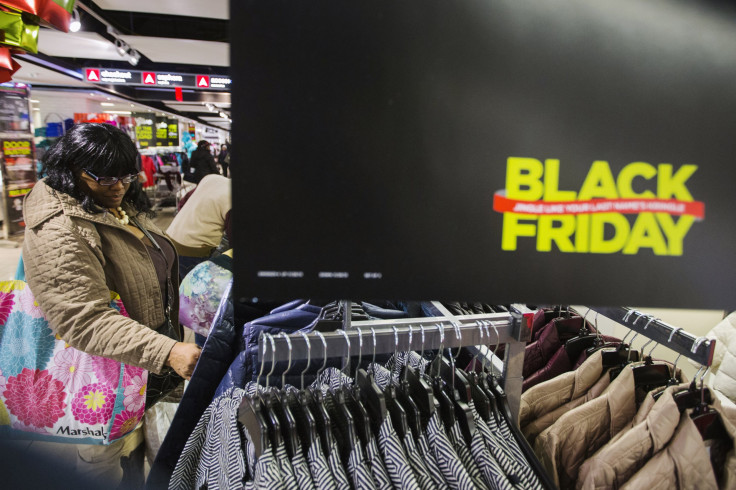Black Friday Boycott: 'No Justice, No Profits,' African-Americans Say After No Indictment For Darren Wilson

No justice, no profits. That’s the rallying cry for African-American consumers who plan to boycott Black Friday in response to a grand jury’s decision not to indict Ferguson Police Officer Darren Wilson in the contentious shooting death of Michael Brown.
The movement, also known as the “No Justice, No Profit” boycott, is gaining steam on social media, especially on Twitter, where the hashtags #BlackFridayBlackOut, #BlackFridayProtest and #BoycottBlackFriday are being used to spread the message:
@TraceeEllisRoss #HandsUpDontSpend #BlackFridayBlackOut #ProtestTheirPockets pic.twitter.com/xnoZx43aWL
- Armani M. (@im__armani) Nov. 25, 2014It's not the final solution but imagine if we all didn't buy anything this weekend. #Ferguson #BoycottBlackFriday pic.twitter.com/O1gUGPaauM
- Wakandan BenHaMeen (@djbenhameen) Nov. 25, 2014The #BlackFridayProtest would put a financial strain on these major companies. These companies rely on the black dollar being spent.
- Vernest Brown™ (@mrboro615) Nov. 25, 2014There are 43 million African-American consumers who have a collective $1 trillion in buying power, according to a September 2013 study by Nielsen. These consumers make an average of about 156 shopping trips every year, more than any other group, according to the study. Their buying power is projected to grow to $1.3 trillion by 2017.
But the biggest shopping day of the year, and the day when most retailers begin to turn a profit, which gives Black Friday its name, won’t be one of those trips for those participating in the boycott. The economic protest was spurred by a grand jury in Ferguson, Missouri, that did not indict Wilson in the death of Brown, an unarmed black teenager, in August.
"The only tool to fight against this is the economic side," Carlos Howard, the owner of a funeral home in Norfolk, Virginia, told local ABC affiliate WVEC.
Civil rights activists in Atlanta were set to urge African-Americans to participate in the boycott, the Atlanta Journal-Constitution reported.
© Copyright IBTimes 2024. All rights reserved.












